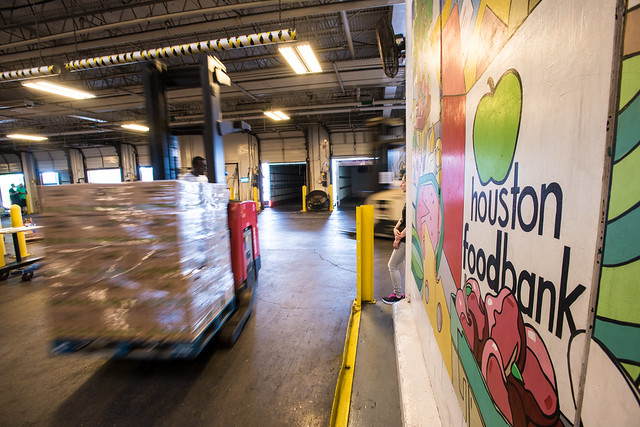
Food donations to help those in need have been an important part of America’s safety net during the challenges posed by COVID-19. Did you know that the Bill Emerson Good Samaritan Food Donation Act of 1996 (PDF, 207 KB) (42 U.S. Code § 1791) provides limited liability protection for people who make good faith donations of food and grocery products to nonprofits that feed the hungry? The act also provides limited liability protection, both civil and criminal, for those who distribute food and groceries, such as food banks.
If you have not heard about this act, you are not alone. This lack of awareness of the Good Samaritan Act prompted Congress in the 2018 Farm Bill (Section 12504 of the Agriculture Improvement Act of 2018) to call for USDA to raise awareness of the liability protection afforded by the act. As USDA’s Food Loss and Waste Liaison, I am leading outreach efforts to let businesses involved with food donations from farm-to-fork know about this limited liability protection.
In order to receive protection under the act, a person or gleaner must donate in good faith apparently wholesome food or apparently fit grocery products to a nonprofit organization for ultimate distribution to needy individuals. It does not cover direct donations to needy individuals or families. The act also provides protection against civil and criminal liability to the nonprofit organizations that receive such donated items in good faith.
So, what does this really mean? Let’s take one bite at a time.
- Here, the term “person” means an individual, corporation, partnership, organization, association, or governmental entity, including a retail grocer, wholesaler, hotel, motel, manufacturer, restaurant, caterer, farmer, and nonprofit food distributor or hospital. In the case of a corporation, partnership, organization, association, or governmental entity, the term includes an officer, director, partner, deacon, trustee, council member, or other elected or appointed individual responsible for the governance of the entity. See table 1 for application of the act by type of entity.
- The act covers donations made and received in “good faith,” but it does not define “good faith.”
- The term “apparently wholesome food” means food that meets all quality and labeling standards imposed by federal, state, and local laws and regulations even though the food may not be readily marketable due to appearance, age, freshness, grade, size, surplus, or other conditions.
- The term “apparently fit grocery product” means a grocery product that meets all quality and labeling standards imposed by federal, state, and local laws and regulations even though the product may not be readily marketable due to appearance, age, freshness, grade, size, surplus, or other conditions.
The act also extends liability protections to donors of food and grocery products who do not meet all quality and labeling standards if the donor informs the nonprofit organization that receives the items, the nonprofit organization agrees to recondition the items to meet all quality and labeling standards, and the nonprofit organization is knowledgeable of the standards to do so properly.
Table 1: Who is covered under the Good Samaritan Act for food donations?
|
Entity |
Covered? |
|---|---|
|
Backyard gardeners |
Donations by backyard gardeners would be covered under the broad definition of “person,” which includes individuals. |
|
Farmers |
The act expressly covers farmers. |
|
Gleaners |
The act expressly covers gleaners. |
|
Restaurants, retail grocers and manufacturers |
The act expressly covers donations by restaurants, retail grocers and manufacturers. Donations by a food service company also would be covered under the broad definition of “person,” which includes corporations, partnerships, organizations, and associations. |
|
Caterers |
The act’s definition of “person” expressly covers donations by caterers. |
|
Food trucks |
Donations by a food truck would be covered under the broad definition of “person,” which includes corporations, partnerships, organizations, and associations. |
|
School food authorities and institutions of higher education |
Yes, these entities are expressly included in the definition of “qualified direct donors” in the Emergency Food Assistance Act of 1983, as amended by the 2018 Farm Bill. |
|
Food banks |
The act expressly covers donations by nonprofit food distributors. |
|
Kitchens that create meals from donated food and then sell the meals at extremely low prices in underserved neighborhoods |
No, for a donation to be covered by the act, the ultimate recipients of the food or grocery items must not be required to give anything of value. |
All fifty states and the District of Columbia have additional food donation statues that limit food donor’s liability—these currently vary widely, such as by who (i.e., donors, nonprofit organizations), and what foods and food products are covered. The Department of Justice (DOJ) Office of Legal Counsel has interpreted the Act as preempting state laws that provide less liability protection to donors. [1] In simple language, this means that under the DOJ’s interpretation, state laws may provide greater protection against liability, but not less. The Good Samaritan Act serves as a floor or minimum bar for states’ food donation statutes.
For more information, see individual state’s websites and USDA’s Food Loss and Waste web page on donating food, which includes links to a number of organizations which offer legal guidance on food recovery and the Bill Emerson Good Samaritan Act.
The information presented is not a guidance document and does not constitute legal advice or create an attorney-client relationship.
Read more USDA blogs on the topic of food waste.
[1] Preemptive Effect of the Bill Emerson Good Samaritan Food Donation Act, 21 Op. O.L.C. 55 (March 10, 1997), available at www.justice.gov/sites/default/files/olc/opinions/1997/03/31/op-olc-v021-p0055_0.pdf (PDF, 133 KB).
[i] The protection under the act does not apply to acts or omissions constituting gross negligence or intentional misconduct.
